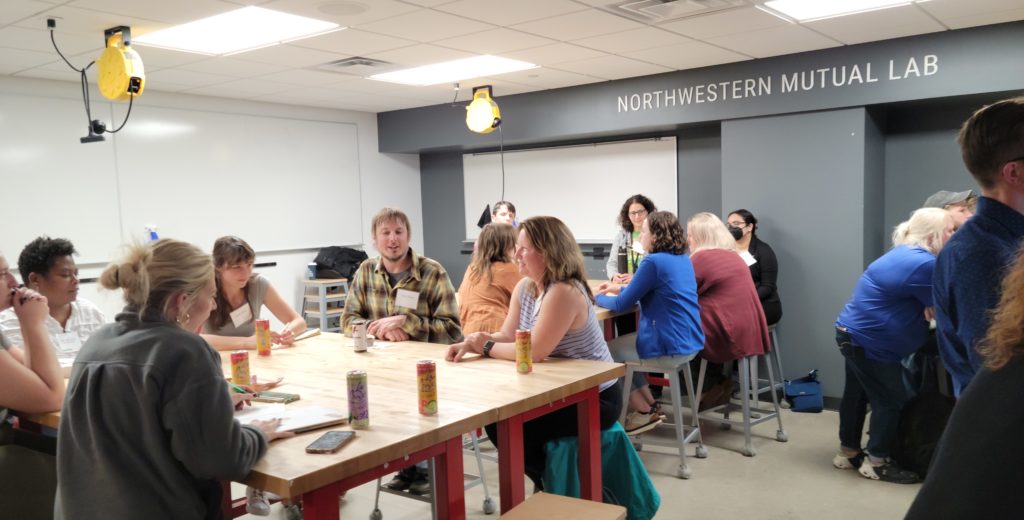
We hit a milestone with last Thursday’s Collab Lab — our 50th session since we started in the summer of 2016! Thanks to all the attendees who were there to celebrate with us in person.
The focus for the evening was Community Engaged Science for K12 students (AKA community engaged research or citizen science) — what do we hope students might gain, what assets we can bring to bear to support the work, and what we can do in the short term to move towards those goals.
We started the conversation by asking participants what community engaged science means to them.
Beyond goals such as “the chance to see what professionals are working on and how they approach their research”, beyond “opportunities to engage in or contribute to research efforts that extend beyond the classroom”, and even beyond “:giving students a chance to connect with scientists in industry, higher education or government agencies”, was the idea that the community is engaged in deciding the issues to focus community research and science on.
That set us up nicely to talk about our goals for students.
Goals for students
Participants had a broad range of goals for student involvement with community engaged science. From those several common themes emerged:
- We want students to see that they can make contributions, that science is something they can participate in, and that scientific understanding can empower them to be more effective citizens who can take on issues in their community and become stewards of the environment,
- We want students to see that they can be lifelong learners, that there are broad opportunities to apply scientific knowledge and skills, and that they can make connections with working scientists in the community who might serve as role models or mentors.
- We want this work to bring diverse voices, perspectives, and ways of knowing into conversations within science and and the focus areas for that work.
- Finally, we want students to experience the joy that can come from scientific investigation, discovery, and understanding.
The question then becomes: “where are the scientists, the voices and perspectives, that we as educators may include in student inquiry projects?”
Assets we know
We took advantage of the broad mix of folks in the room to inventory the assets available to Milwaukee students and teachers. It turns out, there are a lot of resources and programs to explore ideas and connect with partners who can support community engaged science.
Just consider this (not curated) list:
- Business/Professionals
- Higher-ed, nonprofits
- Badger State Science & Engineering Fair
- natural world
- school yard
- rivers, trails, & parks
- community partners
- multi-visit
- relationship follow-up
- curriculum (training and capacity needed)
- Project Lead The Way
- school Leadership teams, teachers, admin & district staff
- teacher experts
- extracurricular & interest groups
- local science projects (water inquiry project) SIFTR
- Other schools’ older & younger students
- media/news
- local science experts
- academia
- local government
- nonprofits
- Parks
- museums
- nature centers
- field experiences
- Green Schools Consortium
- Funding
- United way
- Donors choose
- ESSER Funds
- NSF
- MMSD (funds for green schools projects)
- Wisconsin DNR
- WSST
- NRF
- Partners/Physical Resources
- Teens Grow Greens
- WAEE
- local nature centers
- county parks systems
- Flex Farms users
- Museums
- UWM School of Freshwater Sciences
- Reflow
- MMSD
- Green Point Partners
How do we move forward?
Just knowing (or just now learning about) assets that are available, is nice but not very useful. We wrapped up the conversation by asking “What can we do in the next 30 days to get closer to your vision for community engaged science for K-12 students?” All of our discussion identified some version of “Continue the conversation with the folks I met here” as a key next step. This could be to: learn more about what another school or teacher(s) is doing, availability of programming or expertise offered by community partners, or for those partners, ways to better understand the needs and goals of educators.
Acknowledgements
We are especially grateful to our featured participants for the experience and insight they brought to the discussion:
Jessica Knackert – Volunteer Coordinator, Wisconsin Department of Natural Resources
Peter Lenaker – Physical Scientist, USGS
Christopher Simenz – Practicum Coordinator, Clinical Professor, Marquette University
Bernardo Traversari – Director of Science Outreach, Edgewood College
Adriana Vázquez – Director of Education & Public Programs, Milwaukee Public Museum
Thanks again to MSOE’s STEM Center for hosting our Collab Lab series this season.
Be part of the Conversation
If you like the topics we select every month and would like to be part of the conversation, we invite you to join us next time for Collab Lab 51 (RSVP). We’ll explore how we can let students drive issues that are the focus of their work (essential component of inquiry based learning, student voice, project based learning). Come share your experience if you are practicing student inquiry with your students, or join the conversation by asking your questions to expand your thinking about how your peers do this and why they believe in this approach.
Join us by RSVPing here

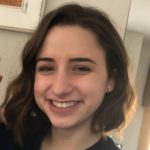 Jessica is a volunteer coordinator who leads educator engagement for the Snapshot Wisconsin project.
Jessica is a volunteer coordinator who leads educator engagement for the Snapshot Wisconsin project. 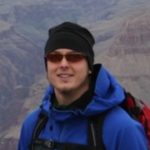 Pete works out of the Upper Midwest Water Science Center in Madison, Wisconsin, bringing his expertise in microplastics, waterborne pathogens, water quality, aquatic ecosystems, water resources, and nutrient biogeochemistry to bear on issues raging from the spatial distribution of microplastics, to using optical properties to predict and estimate wastewater contamination, to the prioritization of pharmaceutical contaminants. He is particularly interested in enhancing our understanding of the sources of microplastics to aquatic ecosystems and how to efficiently and accurately quantify this diverse group of contaminants.
Pete works out of the Upper Midwest Water Science Center in Madison, Wisconsin, bringing his expertise in microplastics, waterborne pathogens, water quality, aquatic ecosystems, water resources, and nutrient biogeochemistry to bear on issues raging from the spatial distribution of microplastics, to using optical properties to predict and estimate wastewater contamination, to the prioritization of pharmaceutical contaminants. He is particularly interested in enhancing our understanding of the sources of microplastics to aquatic ecosystems and how to efficiently and accurately quantify this diverse group of contaminants.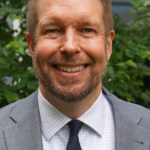 Dr. Simenz has spent 20 years in community engaged research on wellness, social determinants of health, physical activity, and performance. Research, policy, and advocacy work has developed partnerships amongst a diverse group of populations and is focused on policy and systems change in PA and access to wellness for marginalized populations. Our research team has developed and written wellness policy for the United Neighborhood Centers of Milwaukee (UNCOM), Milwaukee Public Schools, and the Boys & Girls Clubs of Greater Milwaukee. He is actively engaged in promotion of equity in housing, food insecurity and healthcare access as a faculty member in the MCW Doctor of Public Health Program, as a board member of StreetLife Communities supporting those experiencing homelessness, and as a member of the North Shore Board of Health.
Dr. Simenz has spent 20 years in community engaged research on wellness, social determinants of health, physical activity, and performance. Research, policy, and advocacy work has developed partnerships amongst a diverse group of populations and is focused on policy and systems change in PA and access to wellness for marginalized populations. Our research team has developed and written wellness policy for the United Neighborhood Centers of Milwaukee (UNCOM), Milwaukee Public Schools, and the Boys & Girls Clubs of Greater Milwaukee. He is actively engaged in promotion of equity in housing, food insecurity and healthcare access as a faculty member in the MCW Doctor of Public Health Program, as a board member of StreetLife Communities supporting those experiencing homelessness, and as a member of the North Shore Board of Health. Bernie leads the College’s science education and community engagement programs, including The
Bernie leads the College’s science education and community engagement programs, including The 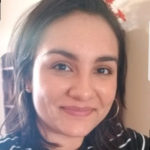 Adriana is an MPS graduate and educator. As a classroom teacher, she partnered with the Museum’s educators to create curriculum based on exhibits and coordinate field trips. She strongly believes in the unique ability museums have to provide educational experiences that reinforce the learning happening in classrooms, and that museums should be a resource for formal educators in K-12+ and engage curiosity and excitement in learners of all ages. In her new role with the Museum, she looks to build out those opportunities.
Adriana is an MPS graduate and educator. As a classroom teacher, she partnered with the Museum’s educators to create curriculum based on exhibits and coordinate field trips. She strongly believes in the unique ability museums have to provide educational experiences that reinforce the learning happening in classrooms, and that museums should be a resource for formal educators in K-12+ and engage curiosity and excitement in learners of all ages. In her new role with the Museum, she looks to build out those opportunities.